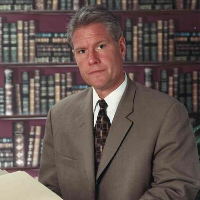Wedron Felony Lawyer, Illinois
Kristine M. Honiotes
Kristine Honiotes is a trial lawyer with over 12 years of experience. As a former Will County Assistant Public Defender, she defended all types of fel... (more)
Patricia Magaña
Attorney Magaña has extensive experience in criminal defense, including traffic, misdemeanor, and felony offenses. Additionally, she represents indiv... (more)
Philip R. Nathe
After starting his career in the criminal courts of DuPage County as a clerk more than 30 years ago, Philip Nathe went on to become an accomplished at... (more)
Brett A. Appelman
In 2007, Brett Appelman established Appelman Law LLC with the mission of safeguarding and advocating for the rights of individuals accused of crimes. ... (more)
Donald John Ramsell
✓ VERIFIEDDonald J. Ramsell's interests include golf, Corvettes, the Cubs, travel, and winning cases. Donald J. Ramsell is the only Illinois DUI defense att... (more)
Jorie Johnson
Juan Ooink
FREE CONSULTATION
CONTACT






